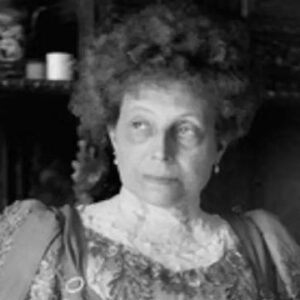Gertrude Bell, CBE, was an English author, archaeologist, voyager, and diplomat who was instrumental in establishing British dominance in the Transjordan, Ottoman, and Mesopotamia regions of the Middle East. She played a crucial role in the formation of British policy in the Middle East. She was appointed ‘Oriental Secretary’ due to her extensive knowledge of Middle Eastern cultures, religious factions, and languages. Together with T. E. Lawrence, widely known to the world as “Lawrence of Arabia,” she was instrumental in establishing the Hashemite Kingdoms in what are now Jordan and Iraq. She is said to have been a consummate diplomat, as many of the individuals with whom she negotiated became her devotees in the future. At age 58, Bell was discovered deceased from an apparent overdose of sleeping pills. She was awarded the Order of the British Empire, and her contributions were recognized and praised in the British Parliament.
Youth and Early Life
Gertrude Margaret Lowthian Bell was born in Washington Hall, County Durham, England, on July 14, 1868, to Sir Hugh Bell, 2nd Baronet, and Mary Shield Bell. She was the sister of Sir Maurice Hugh Lowthian Bell, Reverend Hugh Lowthian Bell, Florence Elsa Richmond, and Mary Katherine Trevelyan, OBE.
Bell’s mother passed away during the birth of her sibling Maurice in 1871. Gertrude was only three years old when her mother passed away. Due to the passing of her mother, she grew close to her father, a progressive capitalist and mill proprietor. Sir Isaac Lowthian Bell, Bell’s ironmaster ancestor, was a liberal Member of Parliament during Benjamin Disraeli’s second term.
Gertrude Bell’s Career
In May 1892, Gertrude Bell traveled to Tehran to visit her uncle, the British ambassador to Persia Sir Frank Lascelles. In her 1894 volume titled “Persian Pictures,” she recounted her experiences. She spent the majority of the following decade traversing the globe. She became proficient in Arabic, Persian, German, and French, as well as some Turkish and Italian through her travels.
In 1899, she traveled to the Middle East once more. Throughout the subsequent twelve years, she traversed the Arabian peninsula six times. Her Middle Eastern experiences were documented in the 1907 book Syria: The Desert and the Sown.
In March of 1907, she traveled to the Ottoman Empire to collaborate with archaeologist Sir William M. Ramsay. The publication “One Thousand and One Churches” contains a record of their excavations. In January 1909, she traveled to Mesopotamia. She traveled to the Hittite city of Carchemish, where she first encountered T. E. Lawrence, also known as “Lawrence of Arabia.”
In November 1915, Bell was summoned to Cairo to join the newly-formed Arab Bureau. This is the second occasion she has met T. E. Lawrence. Due to their extensive knowledge of the region and the languages are spoken there, both Bell and Lawrence were assigned to the Army Intelligence Headquarters in Cairo for military service in 1915.
In the Middle East, she became a witness to the Armenian Genocide. She was deeply affected by the atrocities she witnessed. Gertrude Bell opposed the Zionist movement because she believed that imposing Jewish authority on the Arab inhabitants of Palestine was unjust.
In the early 1920s, she played an integral role in the administration of Iraq. She was also instrumental in designing the Iraqi flag as we know it today. In November 1919, Gertrude Bell was invited to lecture at a promotional event for the public library in Baghdad.
From 1921 to 1924, she subsequently served as president of the Library Committee. Her passion for archaeology inspired her to establish the Baghdad Archaeological Museum, now known as the Iraqi Museum, by assembling extensive collections of Babylonian artifacts.
Bell’s Major Opera
After the British forces captured Baghdad on 10 March 1917, Chief Political Officer Percy Cox summoned Bell to Baghdad. She was given the position of ‘Oriental Secretary’. Winston Churchill chose Gertrude Bell, her colleague Lawrence, and Cox to represent British interests at the 1921 Cairo Conference to determine the boundaries of the British Mandate.
In the conference presided over by King Abdullah, King Faisal, and their sons, Bell, Lawrence, and Cox are said to have worked ceaselessly towards the establishment of the “Transjordan” countries as well as Iraq.
Awards & Achievements
Gertrude Bell was awarded the Order of the British Empire, and the British Parliament made special mention of her accomplishments. A stained-glass window was installed in St Lawrence’s Church in East Rounton, North Yorkshire, in her honor.
Personal History and Legacy
Gertrude Bell was never married and never had children. She had a fleeting relationship with the British colonial administrator in Singapore, Sir Frank Swettenham. Between 1913 and 1915, Bell allegedly exchanged love letters with married Major Charles Doughty-Wylie.
The physical and mental strain of writing numerous books, intelligence briefings, and correspondence, combined with years of excessive smoking and the heat of Baghdad, had a negative impact on her health. Gertrude Bell was discovered deceased from an overdose of sleeping pills on July 12, 1926. Bell was interred in the Bad al Sharji district of Baghdad. Numerous people attended her funeral. Supposedly, King Faisal observed the procession from his veranda.
Estimated Net Worth
The estimated net worth of Gertrude Bell is $2 million.
Trivia
In 2016, a campaign was initiated to convert Gertrude Bell’s family estate, Red Barns, into a museum and memorial in her honor.


